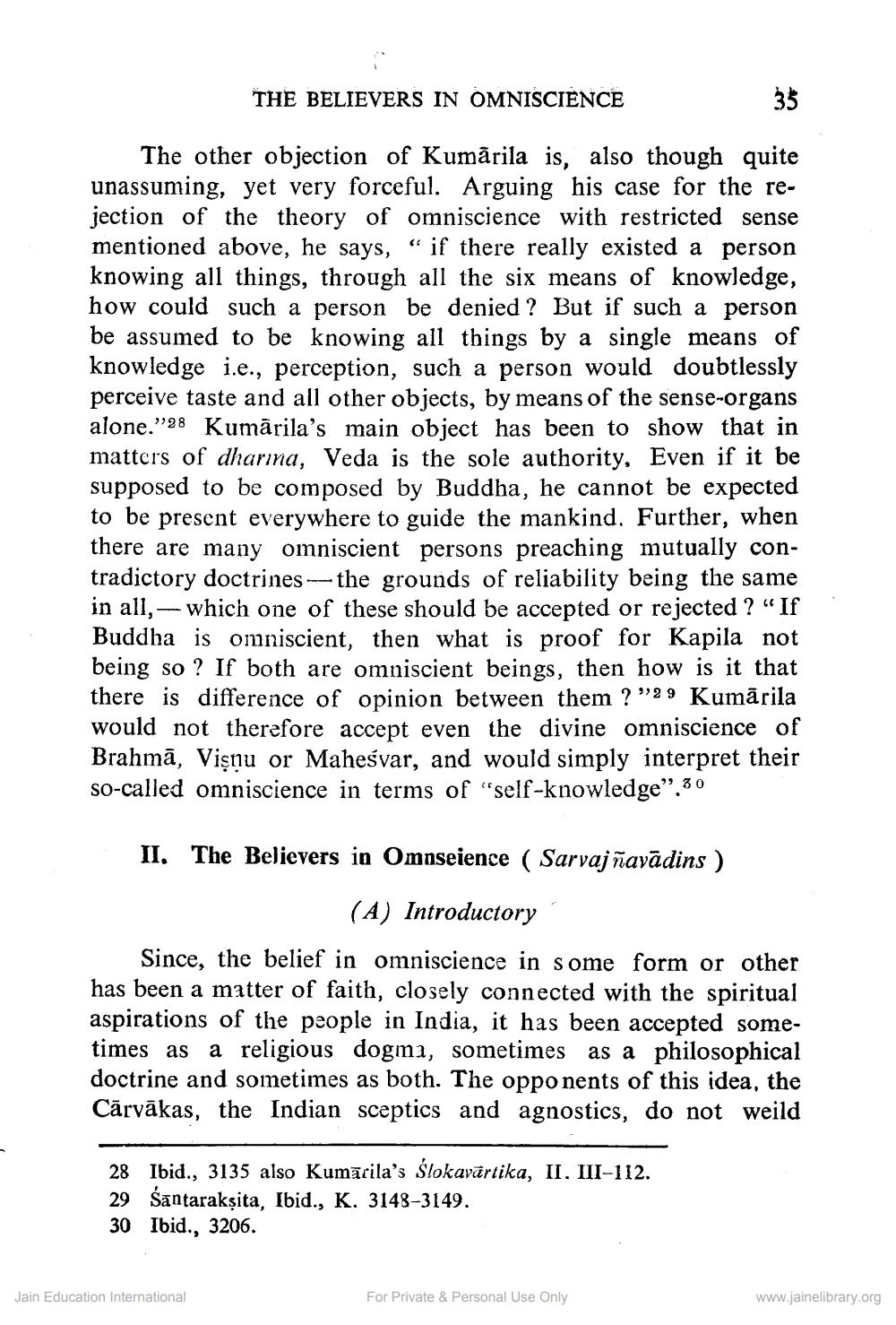________________
35
The other objection of Kumarila is, also though quite unassuming, yet very forceful. Arguing his case for the rejection of the theory of omniscience with restricted sense mentioned above, he says, "if there really existed a person knowing all things, through all the six means of knowledge, how could such a person be denied? But if such a person be assumed to be knowing all things by a single means of knowledge i.e., perception, such a person would doubtlessly perceive taste and all other objects, by means of the sense-organs alone."28 Kumārila's main object has been to show that in matters of dharma, Veda is the sole authority, Even if it be supposed to be composed by Buddha, he cannot be expected to be present everywhere to guide the mankind. Further, when there are many omniscient persons preaching mutually contradictory doctrines - the grounds of reliability being the same in all, which one of these should be accepted or rejected? "If Buddha is omniscient, then what is proof for Kapila not being so? If both are omniscient beings, then how is it that there is difference of opinion between them? "29 Kumārila would not therefore accept even the divine omniscience of Brahmā, Viṣṇu or Maheśvar, and would simply interpret their so-called omniscience in terms of "self-knowledge".30
1
THE BELIEVERS IN OMNISCIENCE
II. The Believers in Omnseience (Sarvajñavādins)
(A) Introductory
Since, the belief in omniscience in some form or other has been a matter of faith, closely connected with the spiritual aspirations of the people in India, it has been accepted sometimes as a religious dogma, sometimes as a philosophical doctrine and sometimes as both. The opponents of this idea, the Cārvākas, the Indian sceptics and agnostics, do not weild
28 Ibid., 3135 also Kumarila's Ślokavārtika, II. III-112.
29 Santarakṣita, Ibid., K. 3148-3149.
30 Ibid., 3206.
Jain Education International
For Private & Personal Use Only
www.jainelibrary.org




